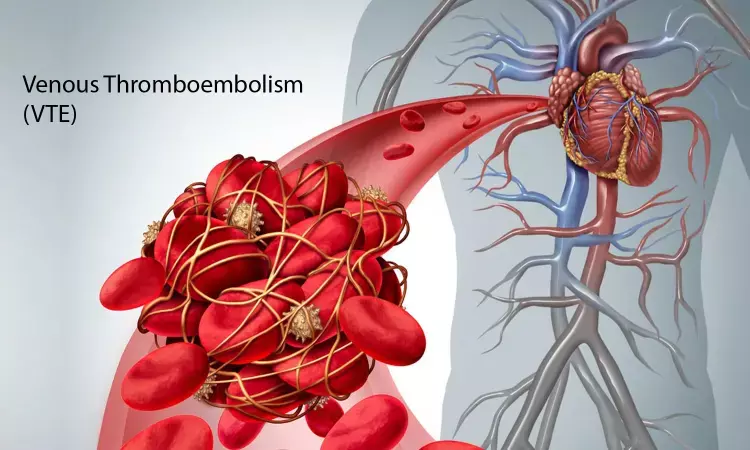- Home
- Medical news & Guidelines
- Anesthesiology
- Cardiology and CTVS
- Critical Care
- Dentistry
- Dermatology
- Diabetes and Endocrinology
- ENT
- Gastroenterology
- Medicine
- Nephrology
- Neurology
- Obstretics-Gynaecology
- Oncology
- Ophthalmology
- Orthopaedics
- Pediatrics-Neonatology
- Psychiatry
- Pulmonology
- Radiology
- Surgery
- Urology
- Laboratory Medicine
- Diet
- Nursing
- Paramedical
- Physiotherapy
- Health news
- Fact Check
- Bone Health Fact Check
- Brain Health Fact Check
- Cancer Related Fact Check
- Child Care Fact Check
- Dental and oral health fact check
- Diabetes and metabolic health fact check
- Diet and Nutrition Fact Check
- Eye and ENT Care Fact Check
- Fitness fact check
- Gut health fact check
- Heart health fact check
- Kidney health fact check
- Medical education fact check
- Men's health fact check
- Respiratory fact check
- Skin and hair care fact check
- Vaccine and Immunization fact check
- Women's health fact check
- AYUSH
- State News
- Andaman and Nicobar Islands
- Andhra Pradesh
- Arunachal Pradesh
- Assam
- Bihar
- Chandigarh
- Chattisgarh
- Dadra and Nagar Haveli
- Daman and Diu
- Delhi
- Goa
- Gujarat
- Haryana
- Himachal Pradesh
- Jammu & Kashmir
- Jharkhand
- Karnataka
- Kerala
- Ladakh
- Lakshadweep
- Madhya Pradesh
- Maharashtra
- Manipur
- Meghalaya
- Mizoram
- Nagaland
- Odisha
- Puducherry
- Punjab
- Rajasthan
- Sikkim
- Tamil Nadu
- Telangana
- Tripura
- Uttar Pradesh
- Uttrakhand
- West Bengal
- Medical Education
- Industry
PCSK9 Inhibitors also lower Venous Thromboembolism risk: Study

The researchers have found in analyses of data from two previously published studies, that the VTE risk declined with PCSK9 inhibition, especially among patients with high lipoprotein(a) levels.The research has been published in the journal CIRCULATION.
The relationship between cholesterol levels and risk of venous thromboembolism (VTE) is uncertain. The researchers investigated the effect of proprotein convertase subtilisin–kexin type 9 (PCSK9) inhibition on VTE risk, investigators examined data on rates of deep vein thrombosis and pulmonary embolism from the manufacturer-supported FOURIER trial (investigating the PCSK9 inhibitor evolocumab) and ODYSSEY Outcomes trial (investigating the PCSK9 inhibitor alirocumab).
PCSK9 inhibitors have previously been shown to reduce major adverse cardiovascular events.
The researchers performed a post-hoc analysis of the FOURIER trial testing whether evolocumab reduces the risk of VTE events (deep venous thrombosis or pulmonary embolism). Data from FOURIER and ODYSSEY OUTCOMES were then combined in a meta-analysis to assess class effect of PCSK9 inhibition on the risk of VTE. We also analyzed baseline lipids in FOURIER to investigate potential mechanisms explaining the reduction in VTE with evolocumab. Finally, an exploratory genetic analysis was performed in FOURIER to determine whether a VTE polygenic risk score could identify high-risk patients who would derive the greatest VTE reduction from evolocumab.
They found a 29% reduction in VTE associated with evolocumab use (P=0.05), with benefits accruing over time (no effect in year 1 but a subsequent 46% reduction). In a meta-analysis, the authors combined FOURIER and ODYSSEY Outcomes data and found a significant 31% reduction in VTE (P=0.007).
The investigators also evaluated lipids and performed an exploratory genetic analysis in FOURIER. Patients with lipoprotein(a) [Lp(a)] levels above the median derived significant benefit — a 48% reduction in VTE with evolocumab — while those with Lp(a) levels below the median had no significant reduction in VTE. Investigators also derived a polygenic risk score involving 273 single nucleotide polymorphisms and applied it to FOURIER data. Patients at highest genetic risk for VTE obtained greater VTE reduction with evolocumab than patients with lower scores.
They concluded that PCSK9 inhibition significantly reduces the risk of VTE. Lp(a) reduction may be an important mediator of this effect, a finding of particular interest given ongoing development of potent Lp(a) inhibitors.
For further reference log on to:
Marston NA et al. The effect of PCSK9 inhibition on the risk of venous thromboembolism. Circulation 2020 Mar 29; [e-pub]. (https://doi.org/10.1161/CIRCULATIONAHA.120.046397)
Dr Kamal Kant Kohli-MBBS, DTCD- a chest specialist with more than 30 years of practice and a flair for writing clinical articles, Dr Kamal Kant Kohli joined Medical Dialogues as a Chief Editor of Medical News. Besides writing articles, as an editor, he proofreads and verifies all the medical content published on Medical Dialogues including those coming from journals, studies,medical conferences,guidelines etc. Email: drkohli@medicaldialogues.in. Contact no. 011-43720751


